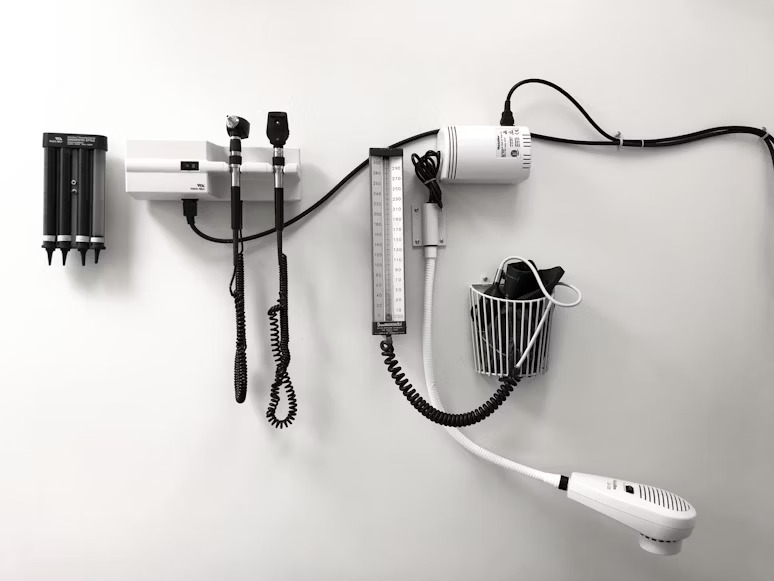Choosing a healthcare career today often involves deciding between highly technical roles that blend medicine with modern technology. Two popular and fast-growing paths are Microsoft Medical Coder Specialist and Healthcare IT Professional. While both fields serve essential functions within healthcare organizations, the skills, responsibilities, and career outcomes differ greatly. Understanding these distinctions is key if you’re evaluating which career aligns best with your goals, strengths, and interests.
This article provides an in-depth comparison of both roles, exploring training requirements, daily responsibilities, work settings, and long-term career outlooks. By the end, you’ll be better equipped to answer the question: Which career is right for me?
What is a Microsoft Medical Coder Specialist?
A Microsoft Medical Coder Specialist is a healthcare professional who applies medical coding systems to translate patient records, diagnoses, and procedures into standardized codes for billing, insurance claims, and healthcare data management. The “Microsoft” element highlights the use of specialized Microsoft platforms, such as MedCode Specialist tools, that integrate coding accuracy with digital health record systems.
Coders work behind the scenes but are essential to ensuring healthcare providers are reimbursed accurately and promptly. Their precision reduces billing errors, prevents fraud, and supports compliance with healthcare regulations like HIPAA.
Key Responsibilities
- Reviewing patient charts and clinical documentation.
- Assigning standardized codes (ICD-10, CPT, HCPCS).
- Ensuring compliance with payer guidelines and government regulations.
- Using Microsoft MedCode and electronic health records (EHR) systems.
- Supporting audits and data analysis for quality care initiatives.
What is a Healthcare IT Professional?
A Healthcare IT Professional focuses on the technology infrastructure that supports healthcare systems. They design, manage, and secure the digital tools that allow providers, hospitals, and insurance networks to operate efficiently.
Unlike medical coders, who primarily interact with patient documentation, IT professionals work on broader systems like EHR platforms, patient portals, cloud-based healthcare apps, and cybersecurity frameworks that protect sensitive medical data.
Key Responsibilities
- Configuring and maintaining EHR systems.
- Ensuring data security and HIPAA compliance.
- Troubleshooting healthcare applications and networks.
- Supporting interoperability between medical systems.
- Training staff on IT systems and resolving technical issues.
Education and Training
Microsoft Medical Coder Specialist
Training for medical coding can be completed relatively quickly, often in less than a year through an online bootcamp program. Students learn coding systems (ICD, CPT, HCPCS), anatomy, medical terminology, and insurance guidelines. Programs such as the Microsoft MedCode Specialist bootcamp prepare learners for certification exams and immediate employment.
Key Certifications:
- Microsoft MedCode Specialist
- Certified Professional Coder (CPC)
- Certified Coding Specialist (CCS)
Healthcare IT Professional
Healthcare IT careers require more technical training. While entry-level positions may accept candidates with certificates or bootcamps, many employers prefer candidates with degrees in IT, computer science, or health informatics. Specialized bootcamps can also provide the practical, hands-on skills needed.
Key Certifications:
- CompTIA Security+ or Network+
- Certified Healthcare Technology Specialist (CHTS)
- Epic or Cerner EHR certifications
Skills Comparison
Microsoft Medical Coder Specialist
- Attention to detail and accuracy.
- Strong knowledge of medical terminology and coding systems.
- Ability to work independently.
- Proficiency with Microsoft MedCode and EHR software.
- Analytical thinking for compliance and audit readiness.
Healthcare IT Professional
- Technical expertise in networking, databases, and cloud computing.
- Cybersecurity knowledge to protect sensitive health data.
- Communication and training skills.
- Problem-solving in high-pressure tech environments.
- Adaptability to new healthcare IT platforms.
Work Settings
Where Microsoft Medical Coder Specialists Work
- Hospitals and clinics.
- Physician’s offices.
- Insurance companies.
- Government healthcare agencies.
- Remote or freelance opportunities in coding services.
Step confidently into the healthcare industry—register for the Microsoft MedCode Specialist bootcamp today.
Where Healthcare IT Professionals Work
- Large hospital systems with complex IT infrastructures.
- Health insurance organizations.
- Healthcare software companies.
- Consulting firms specializing in health IT.
- Public health agencies focusing on data systems.
Advantages of Becoming a Microsoft Medical Coder Specialist
- Quicker Entry into Healthcare – Training programs can be completed in under a year, making it an accessible career for those seeking a faster path to employment.
- Remote Flexibility – Many coding jobs can be done from home, appealing to those seeking work-life balance.
- High Demand Across Settings – Coders are needed in nearly every type of healthcare organization.
- Gateway to Other Roles – Coding experience can open doors to compliance, auditing, or health information management.
Advantages of Becoming a Healthcare IT Professional
- Higher Earning Potential – With technical skills in demand, IT roles often command higher salaries.
- Broader Career Paths – IT professionals can branch into cybersecurity, informatics, or management.
- Future-Proof Skillset – Technology in healthcare is only growing, creating long-term stability.
- Impact on Patient Outcomes – By managing IT systems, professionals directly improve patient care efficiency and safety.
Challenges of Each Career
Challenges for Microsoft Medical Coder Specialists
- Repetitive tasks that require intense concentration.
- Pressure to meet coding deadlines.
- Need for continuous learning as coding systems update.
- Limited career advancement without further certification.
Challenges for Healthcare IT Professionals
- High-pressure environments when systems fail.
- Need for round-the-clock availability in some roles.
- Rapidly changing technology requires ongoing education.
- Greater responsibility for data security breaches.
Which Career is Right for You?
The decision comes down to your interests and professional goals:
- Choose Microsoft Medical Coder Specialist if… you enjoy detail-oriented work, want a quicker path to employment, and value the ability to work remotely. It’s a strong choice for those who prefer healthcare data management over direct patient care.
- Choose Healthcare IT Professional if… you are tech-savvy, enjoy problem-solving, and want a career that combines IT with healthcare’s growing digital needs. This path is ideal for those who want broader opportunities and higher earning potential, though it typically requires more training.
Find a Future in Allied Health Today
Both careers—Microsoft Medical Coder Specialist and Healthcare IT Professional—are vital to the healthcare system. Coders ensure financial and regulatory accuracy, while IT professionals keep the technological backbone of healthcare safe and effective.
Your choice should align with your personal strengths, desired training timeline, and career ambitions. Whether you thrive on precision coding or IT innovation, the healthcare field offers exciting opportunities in both areas.
If you’re ready to take the next step, consider Health Tech Academy. As a premiere online healthcare bootcamp provider, Health Tech Academy offers a variety of allied health bootcamp programs, including the Microsoft MedCode Specialist bootcamp. With expert instructors, flexible online learning, and career support services, Health Tech Academy can help you gain the skills you need to launch a rewarding healthcare career.




